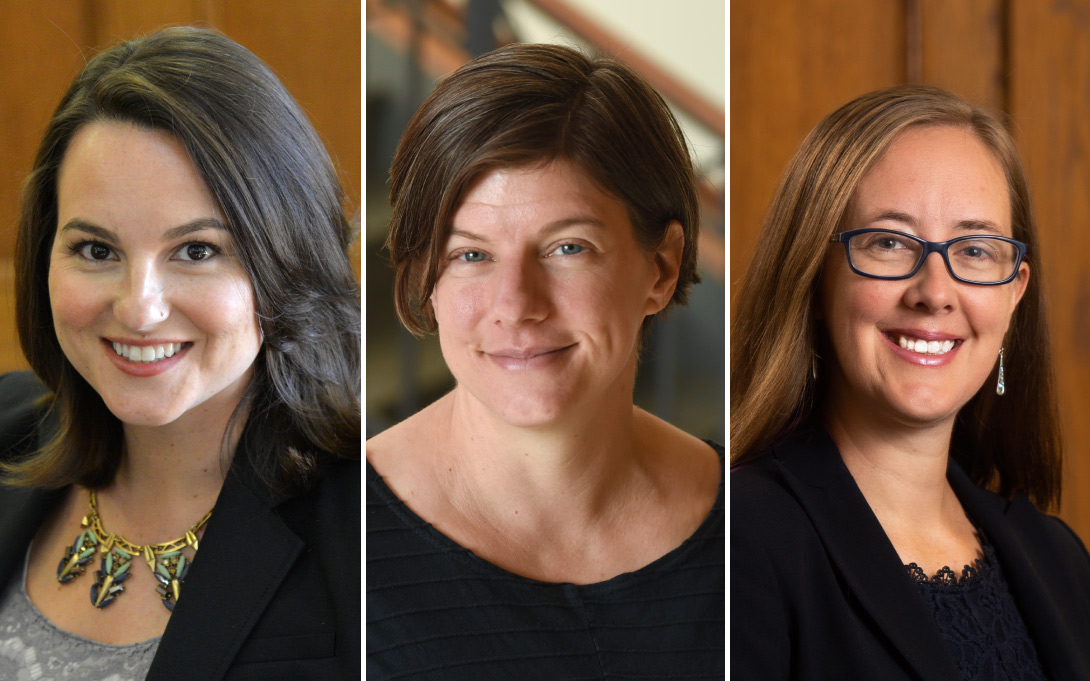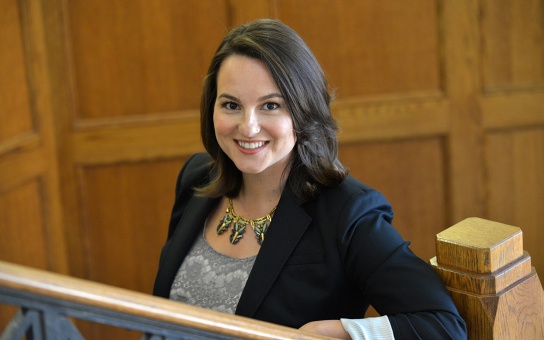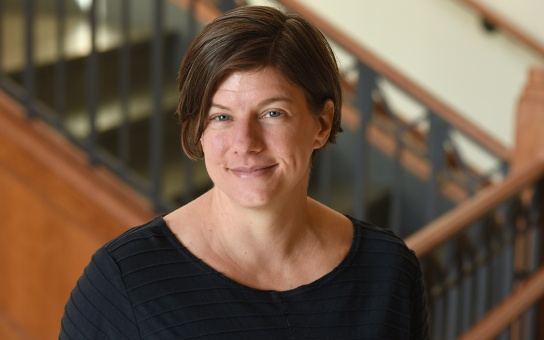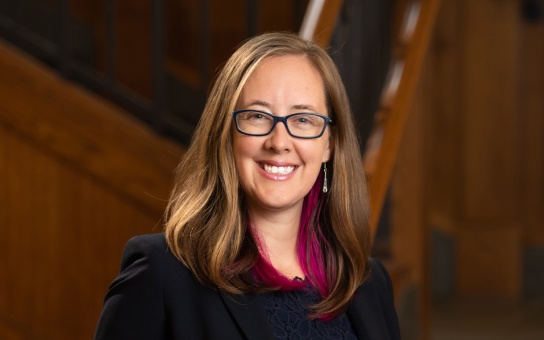
Raimi, Rohde, and Hausman are among our dynamic STPP core faculty
Behaviors and climate change

Kaitlin Raimi is a Ford School associate professor whose research looks at how social motivations promote or prevent sustainable behaviors, especially those related to climate change. She is particularly interested in how different ways of framing climate change affect people’s attitudes to climate policy.
The question
If someone engages in one pro-environmental behavior (such as putting LED lighting in their home), does that mean they will take on other pro-environmental behaviors (what is called positive spillover)? Or does it result in negative spillover because having done one pro-environmental behavior makes them feel they have done enough and do not need to do anything further?
The research
Raimi did a quantitative review of the research studies on positive and negative spillover and found that these effects are really small overall. People who did one behavior intended to do more second behaviors (positive spillover). However, for actual behavior, the effect is small but negative (the first behavior makes the second behavior somewhat less likely), and for policy support, there is basically no effect (voluntary behaviors have no impact on policy support).
The takeaway
Spillover effects are so small that they probably don’t warrant all the attention they get. But, if the goal is to increase multiple behaviors, it can help to make people enjoy the first behavior because that creates “intrinsic motivation” that makes it more likely for them to engage in a second behavior (positive spillover). Interventions that highlight people’s identity or social goals also help create positive spillover.
Why it matters
No single thing—whether a policy, individual action, or technology—can solve climate change on its own. Therefore, we must find ways to help people focus on the most high impact actions and make sure that those actions don’t get in the way of other important climate acts. Luckily, the spillover research suggests that we can promote individual actions without fear of seriously undermining policy support or future voluntary behaviors.
What’s next?
Raimi is currently studying people’s perceptions of technological approaches to mitigate climate change, such as carbon dioxide removal (approaches that remove carbon from the atmosphere). Some seem more natural (like planting more trees because they take in CO2) and others more high tech (like capturing CO2 with wind turbines and storing it underground). Like with spillover, people sometimes fear that learning about these approaches will crowd out support for policies to reduce greenhouse gas emissions. And as with spillover, Raimi finds that these effects are small and easily remedied with the right communication.
Technology and politics

Joy Rohde is a Ford School associate professor and historian who looks at the ways in which science and technology shape, and are shaped by, society. She studies how the history of political institutions, policy knowledge, and technology shape contemporary American foreign policy.
The question
Can machine-aided governance platforms created with big data help us better understand and manage international affairs? What are the implications for government authority and American democratic values when we use technology to manage political problems? Or does our ambivalent faith in technical solutions regarding policy problems reveal ways in which we have downgraded or degraded our own faith in the ability of humans to solve problems?
The research
Rohde is currently writing a book that reveals the history of data-driven policy technologies. Beginning in the 1950s, the military attempted to build computer systems that could anticipate and predict crises before human analysts could detect them. Most of these projects never lived up to their hype.
The takeaway
For some policy issues, where data are representative and there are no value conflicts around the policy goals, data-driven policy tools can be useful. But in many cases, data-driven policy tools contain and hide normative foreign policy commitments and large data gaps. They produce outcomes that are misleading and, in cases of national security policy, potentially dangerous.
Why it matters
Historical analysis reveals the trade-offs implicit in machine-aided governance. Shaping policy decisions using misleading computational models may make the world less safe. It also erodes other important sources of policy knowledge and skill, like area expertise and diplomacy.
What’s next?
The outsize role of military funding for foreign policy knowledge in the U.S. has unintentionally reduced policy knowledge relevant to international cooperation, compared to our deep knowledge about international conflict. How can we right this imbalance and build policy knowledge and tools for making positive and collaborative international change?
Energy and economics

Catherine Hausman is a Ford School associate professor and a research associate at the National Bureau of Economics Research. Her work focuses on environmental and energy economics. Recent projects have looked at inequality and environmental quality, and at the impact of electricity markets on climate change.
The question
We know we need to reduce CO₂ emissions and local pollutants, and current geopolitical events suggest other reasons why we need to reduce reliance on fossil fuels. How can public policy make sure that the energy transition is as clean, cost-effective, and equitable as possible?
The research
In a recent paper called, “Who Will Pay for Legacy Utility Costs?,” Hausman looked at how the energy transition would play out in natural gas markets if policymakers incentivized customers to disconnect from natural gas and transition to electric heating and cooking. The goal of the research was to look at costs and potential inequities.
The takeaway
In the interim, if only some people disconnect from the natural gas system, the pricing effects aren’t that bad for those who remain. But de-carbonization strategies call for a lot of people to electrify, and that could lead to rising bills, as old natural gas pipeline infrastructure still needs to be paid for and maintained.
Why it matters
Many states right now are trying to figure out their rules on electrification and what will happen to natural gas utilities. Hausman hopes to see an evidence-based transition that is equitable while also maintaining pipeline safety.
What’s next?
With another faculty member, U-M environmental economist Samuel Stolper, Hausman has been reviewing how housing markets contribute to inequities in air pollution exposure. They are looking at the failures of environmental regulation in which people don’t have the information about the pollution level they will face if they choose one neighborhood over another.
By Jennifer Conlin
More in State & Hill
Below, find the full, formatted spring 2022 edition of State & Hill. Click here to return to the Spring 2022 S&H homepage.
More news from the Ford School